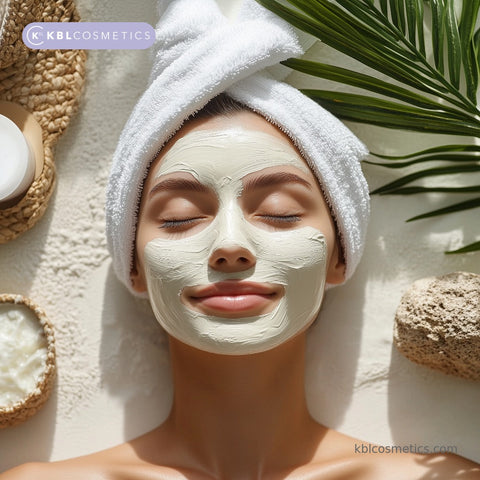An allergen‑free formulation refers to cosmetic products designed to minimize skin irritation and allergic reactions by excluding common allergens and harsh chemicals. These formulations are developed for a variety of skin types, including dry skin, oily skin, psoriatic skin, and sensitive skins, ensuring they are suitable for hypersensitive skin and eczema‑prone skin.
Common irritants and allergens to avoid
Formulations labeled allergen‑free typically avoid these common irritants and allergens:
1. Propylene glycol, dipropylene glycol, and polyethylene glycol—which can cause adverse reaction in sensitive individuals
2. Sodium lauryl sulfate and other sulfates found in facial cleanser and liquid cleansers
3. Benzalkonium chloride and benzoyl peroxide, common in acne treatments
4. Strong hydroxy acids like glycolic acid, lactic acid, salicylic acid—essential for some acne‑prone oily sensitive skin but irritating if overused
5. Titanium dioxide, while generally safe, may still trigger skin reactions in very hypersensitive skin
Benefits of allergen‑free and hypoallergenic beauty products
When you choose hypoallergenic formulas or clean formula options, you can reduce:
- Dryness and flaky skin
- Irritant skin care formulation issues
- Eczema flares or psoriatic skin reactions
- Adverse reactions from topical antibiotics or harsh chemicals
- Untoward effects like adverse reaction to active ingredient in foundation shade or moisturizing full coverage foundation
Key ingredients often removed
Many beauty products remove or replace:
- Mineral oil and other occlusive agents to avoid occlusive treatments for dry skin conditions
- Food grade ingredients such as plant extracts like algae extract or ceratonia siliqua seed extract for clean formula alternatives
- True allergy triggers like bee glue and preservatives like benzoic acid
- Harmful hormone‑altering chemicals often found in household products
- Magnesium sulfate and similar additives used in compositions for skin cleansing
Balancing efficacy and safety
An effective allergen‑free formula still needs key active ingredients such as hyaluronic acid for hydration, linolenic acid, or gentle acid for dandruff control. Formulations may include salicylic acid or benzoyl peroxide in low concentrations to treat specific conditions. To meet a federal standard, products are rigorously tested to ensure no harmful hormone‑altering chemicals or banned preservatives remain.
Who benefits most from allergen‑free cosmetics?
These formulations are particularly suitable for:
- Those with dry skin, flaky skin or eczema‑prone skin
- People with oily skin seeking acne‑prone oily sensitive skin care
- Consumers using body shampoo or body wash with fewer irritants
- Individuals needing dermatological skin care formulations post‑therapy
- Anyone wanting hypoallergenic beauty products free of harsh chemicals
Choosing and comparing treatments
When evaluating allergen‑free vs traditional options, consider:
1. Type of skin disorders or allergies
2. Whether the product is a creamy formula, gel eczema spot treatment or liquid facial cleanser
3. Replacement of household products with safer analogues
4. Presence of trace irritants like benzalkonium chloride or propylene glycol
5. Ingredient source—clean formula with purified water replacing heated water phase
Comparing treatments helps select customized formulations tailored to dryer skin types, light skin or acne‑prone oily sensitive skin.
Summary and next steps
Allergen‑free formulations aim to reduce true allergy and irritant reactions by avoiding common allergy triggers like sulfates, parabens, and preservatives. They balance functional active ingredients with clean components suited for diverse skin types and skin care products.
For a personalized approach with custom skincare formulations and gentle, effective ingredients, please contact us to get started.
